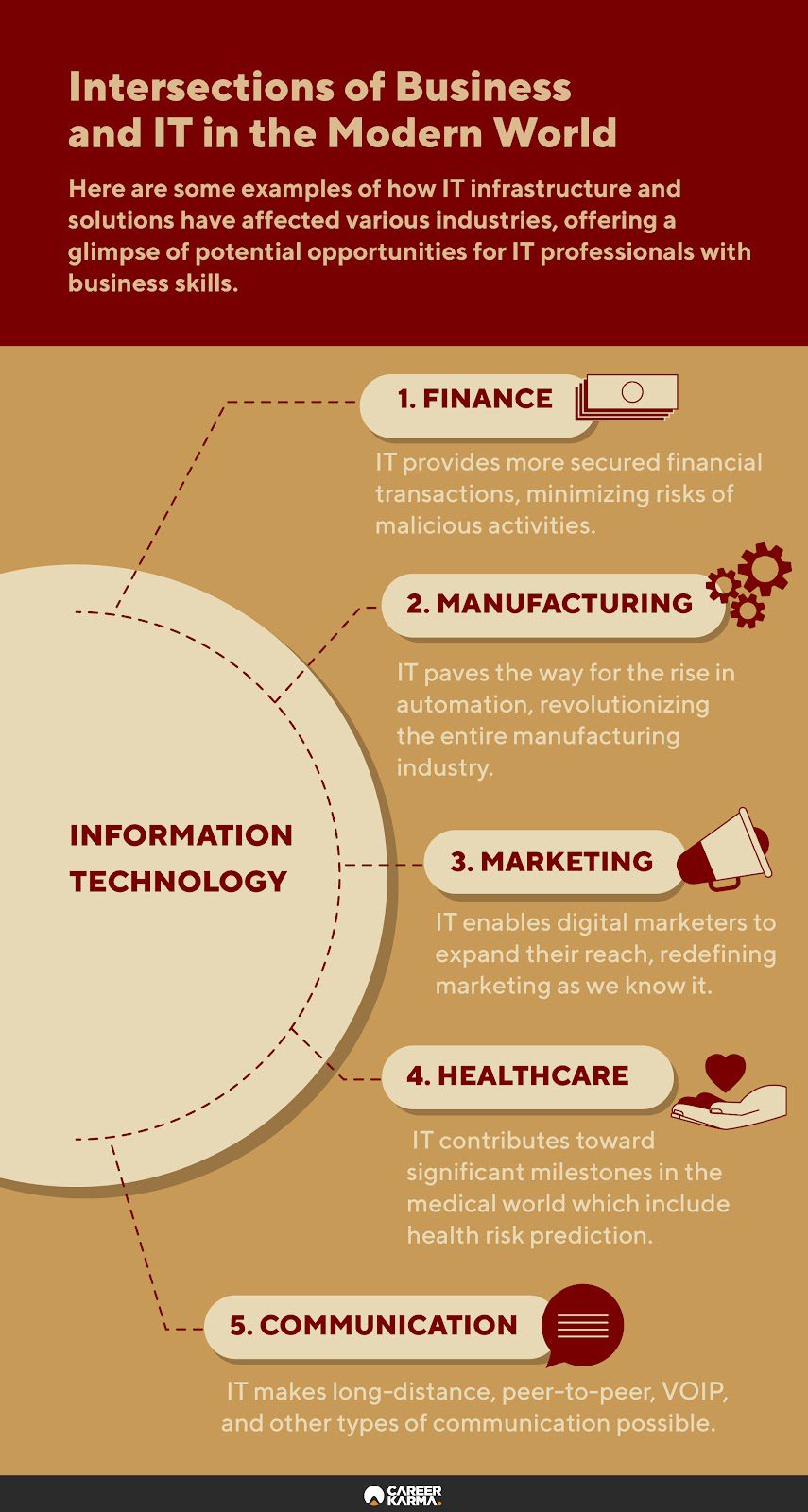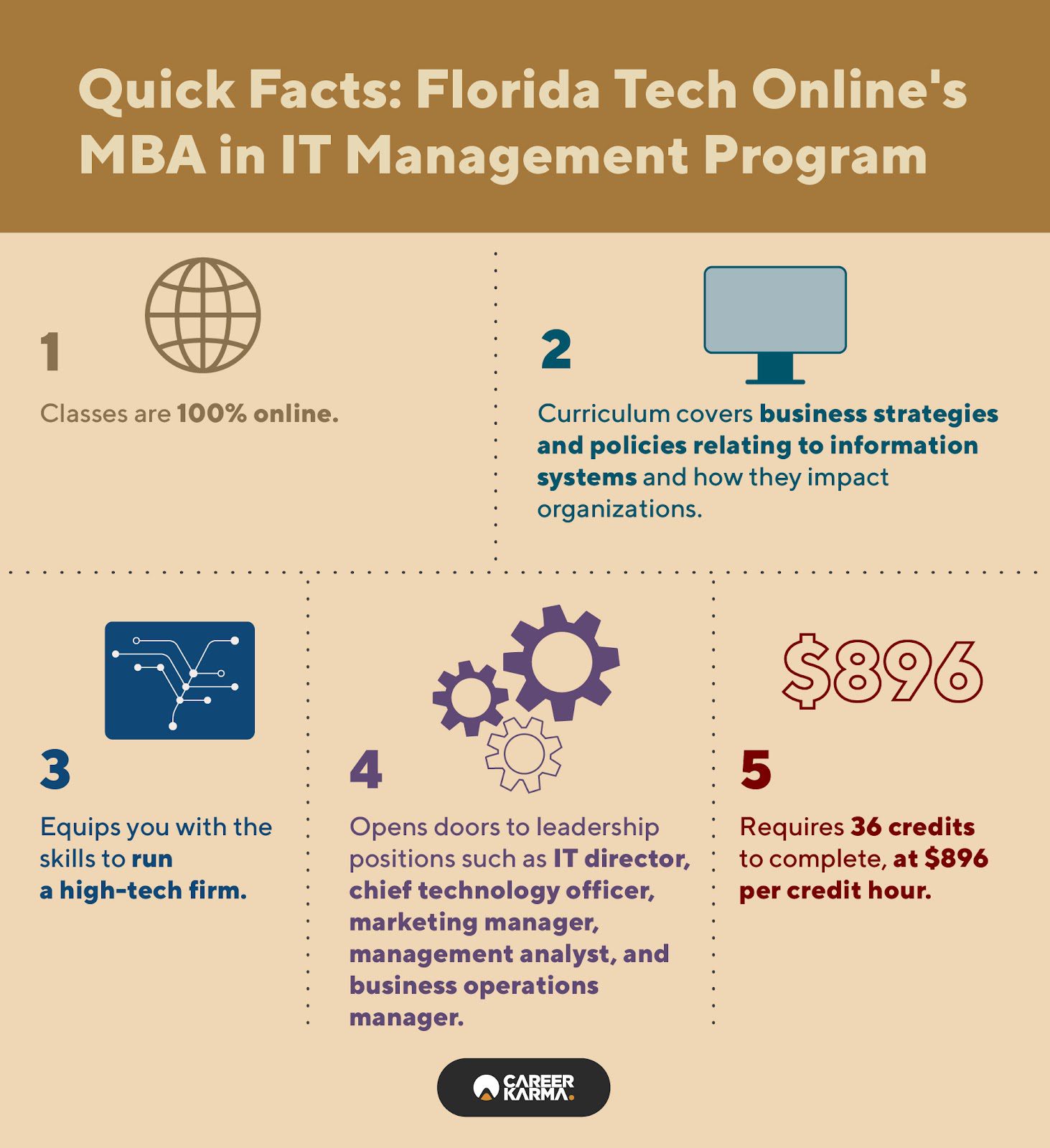More and more, business and technology are becoming deeply intertwined, such that if you want to make your way up the IT ranks, you’ll need to bring more than just your tech skills to the table. Beyond knowing how to code and making the 0s and 1s work, you should also be prepared to demonstrate good business acumen.
This is where an MBA in information technology management can benefit you.
An MBA in IT management provides the opportunity to develop your understanding of the business side of tech—from gaining a broader view of your company’s mission and vision to efficiently collaborating with stakeholders and managing your team. It offers you a unique competitive advantage and an opportunity to grow your career in technology.
To put this into perspective, there is an increasing number of CTOs in tech companies today with MBA degrees, and many firms prefer CTOs who hold master’s degrees in computer science, information technologies, or technology management.
An MBA in IT Management can also hone your interpersonal and people management skills, which are key in leadership positions. According to a 2021 survey of 525 tech workers, 76 percent of managers insist on the value of soft skills, such as critical thinking, communication, leadership, and time management, in the workplace.
IT has intersected almost every major area of the business space and has become part and parcel of strategic operations. So, if you’re an IT professional, this is a strong signal for you to start learning the skills to understand and explore the inter-marriage between these two fields.
Florida Tech’s MBA in IT Management instructs you on the skills to manage IT systems and your team—a winning combination for success. An MBA in IT Management can lead to careers in the tech industry including as an IT management consultant, IT director, and chief technology officer.
Apply for an MBA program in IT today.Understanding the Intersection Between Business and Information Technology

Having a solid knowledge of how businesses operate can help give you a blueprint for providing technical solutions to industry-specific challenges. The following describes how IT has integrated with businesses.
- IT and Finance: IT provides security to organizational financial transactions. As we transition into a cashless society, it has become paramount for organizations to have digital security to protect against scams, fraud, theft, and other finance-related malicious online activities.
- IT and Manufacturing: The rise in automation in the manufacturing industry has been made possible by computer systems.
- IT and Marketing: Digital marketing is growing exponentially and redefining marketing as we know it. Thanks to robust IT infrastructures, marketers now have a broader reach and more data to work with.
- IT and Healthcare: IT has made it possible to store patients’ data indestructibly, enabling quality healthcare and even predicting a person’s health-related risk factors.
- IT and Communication: Long-distance, peer-to-peer, and Voice Over Internet Protocol (VOIP) communication has been made possible by the advancement in IT.
These are just a few sectors, among many others, that have seen significant development since adopting IT products and solutions. At the rate technology is interwoven with businesses, IT professionals who aim to pursue management and leadership positions will want to equip themselves with advanced business management skills. One way to do that is to enroll in an MBA program.
What Can You Learn from an MBA Program?
Master of business administration (MBA) programs are valued across all types of career paths. This is because it teaches valuable skills applicable to the modern-day organizational space. An MBA program can help you develop the following practical skills.
Management and Leadership
One of the most important focuses of MBA programs is equipping students with management and leadership skills relevant to today’s business world. Topics usually cover organizational behavior, business strategy, and leadership.
Having this knowledge can help you build solid relationships with your team as well as make critical decisions that are beneficial to both employees and the organization.
Business Operations
This skill allows you to understand what is happening beneath the surface, mainly how businesses operate on the back end. You will be able to gather insights into the day-to-day processes of running an efficient and successful organization.
Entrepreneurship
Whether you intend to build your startup or work for an established company, entrepreneurial skills are highly sought-after in almost every domain. The ability to think creatively and outside the box can help shine a light on your professional profile and place you in a competitive position among your peers.
Entrepreneurial courses usually cover leadership, finance, and strategy. These skills can serve as a compass for navigating the modern-day business world that is being revolutionized by technology.
Marketing
Marketing skills are becoming more valuable as technology evolves. They allow you to promote your brand and reach a wider audience and are deep-rooted in communication—another essential skill to have as an IT lead. Effective communication can help you build a cohesive team and manage projects, consequently increasing productivity and employee satisfaction and retention.
Earning an MBA in Information Technology

An MBA in IT Management can shape your career as an IT professional and provide you with the necessary skills to adapt to the ever-evolving marketplace.
Furthermore, courses are centered around data management and teach advanced business and technical skills to address emerging and modern challenges. Many also highlight the policies relating to information systems, their usage, and how they impact organizations. Ultimately, these areas of focus can equip you with a solid knowledge of running a high-tech firm.
Jobs You Can Apply to with an MBA in IT Management
Apart from starting your own enterprise, there are several windows of opportunity an MBA in IT Management can open for you. The following are jobs you may be qualified for after earning your degree, as well as your earning potential, according to Payscale (as of June 2022).
- Information system management director: $101,887
- IT director: $122,484
- Chief technology officer: $166,752
- Marketing manager: $68,203
- IT management consultant: $81,067
- Management analyst: $68,658
- Business operations manager: $79,667
Learn the Business Side of Tech
The playbook is changing in the field of IT. To stay competitive, you’ll need a blend of technical and leadership expertise. Acquiring hard skills is a crucial first step in any career move, but it is equally important to complement those skills with advanced business acumen.
To this effect, MBAs in IT gear you up for the current business challenges and the ones ahead. You can prepare to boost your IT career potential by applying for an MBA program in IT today.
About us: Career Karma is a platform designed to help job seekers find, research, and connect with job training programs to advance their careers. Learn about the CK publication.

